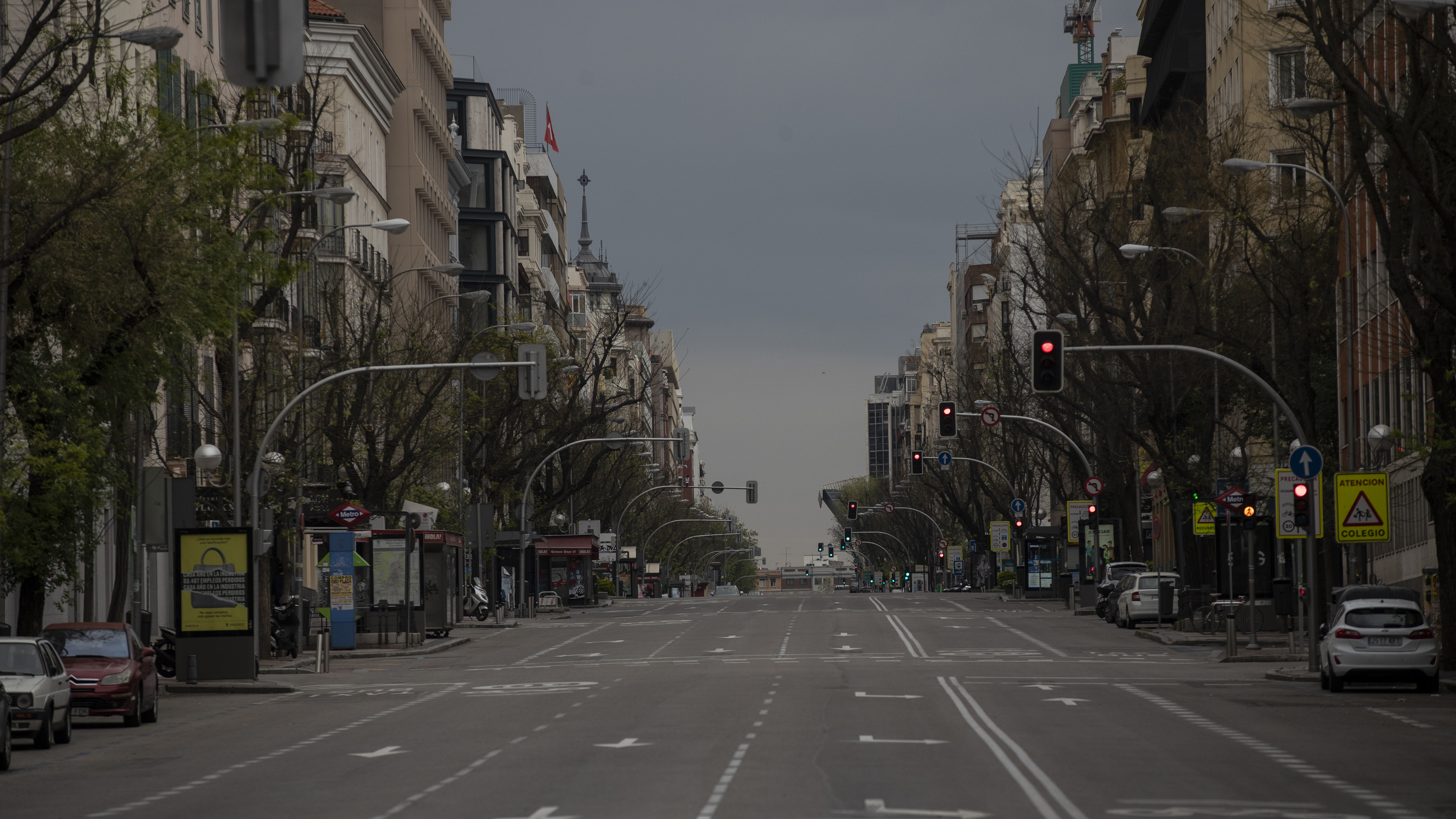
An empty street as the lockdown continues to combat the spread of coronavirus in downtown Madrid, Spain, April 9, 2020. /AP
An empty street as the lockdown continues to combat the spread of coronavirus in downtown Madrid, Spain, April 9, 2020. /AP
Editor's note: Chen Guifang is a freelance writer currently based in Hong Kong. The article reflects the author's opinions and not necessarily the views of CGTN.
Amid the novel coronavirus pandemic, people are so desperate that, in Italy, they started to throw away their money (which is not true), my brother in Ethiopia told me yesterday before he shared with me two photos where banknotes were scattered in the street.
It was a friend of a friend that said it, he said. And everything seems to be going out of control, he told me with apprehension. As someone who studies journalism, my instincts told me it might be fake news. Officials say Italy is now reporting steady declines in new cases of COVID-19, and discarding money at this moment, or any other time in fact, doesn't make sense at all.
I decided to go to a rumor killer section of Weibo or microblogging website, one of China's most popular social media platforms.
It was right there. In the latest message called "A Wrap-up of Important Information of Weibo Rumor Busters" from April 3 to 6, the money claim was listed as fake news. The photos of the notes, which are not the Euro ones used in Italy, were taken in Venezuela in 2019, according to the source of the verification post.
But what is the source of the source, many may ask? It is Agence France-Presse, one of the major international news agencies. Then to be prudent and persuasive, I went to its website and located the story, which details how AFP does the fact checking by tracing back to the very first posts of the two photos on social media before it quotes an Italian ambassador, who made it clear the photos are "FAKE NEWS" as early as late March.
Yes, debunking a piece of fake news turns out to be that easy. Since we are just a few clicks away from the truth, why someone as smart and educated as my brother, who is a Master degree holder, falls victim to fake news readily and easily?
One explanation is that we always tend to believe our own network, especially in times of crisis. The information is, after all, from a relative, a friend, or a friend of a friend. What's more, according to my observation, many of the fake news circulating in chat groups end with asking you to forward the message to all your loved ones. They just want to be nice, so you don't even think of double checking the source. But there is this golden rule among journalists that may be helpful and even awakening: "If your mother says she love you, check it out."

A coronavirus patient under treatment in the intensive care unit interacts with a robot at 'Ospedale di Circolo' hospital, in Varese, Italy, April 8, 2020. /AP
A coronavirus patient under treatment in the intensive care unit interacts with a robot at 'Ospedale di Circolo' hospital, in Varese, Italy, April 8, 2020. /AP
Another explanation is that our brain works in that way. In the era of hunting and gathering, our ancestors, living in tough and challenging conditions, tended to believe whatever gossips or rumors they hear. That was their way to improve their survival rate and pass down their gene to us. That's what psychologists say when they call us humanity living in a digital world with a Stone Age brain.
However, credulousness will not help you prosper in a major public health crisis. As Tedros Adhanom Ghebreyesus, Director General of the World Health Organization, has said of this ongoing coronavirus crisis, "We're not just fighting an epidemic; we're fighting an infodemic."
To win the latter, WHO has opened a page called "Myth Busters," which debunks fake news on the coronavirus disease - COVID-19. So far, the health body has made it clear that there is no evidence that eating garlic has protected people from the new coronavirus, neither taking a hot bath, exposing yourself to the sun, nor drinking alcohol; and that COVID-19 virus can't be transmitted through mosquito bites but can be transmitted in areas with hot and humid climates. The page is for the public, including journalists and media organizations.
But the thing is the media can sometimes inadvertently help spread a rumor. For example, by reporting about wide circulation of empty shelves and videos of shoppers queuing in long lines in supermarkets on social media, journalists may play a role in translating a rumor into a reality. That's the story of the runs on toilet paper seen from Singapore, to Japan and Sydney.
When I attended a seminar (online, of course) on misinformation last week, my biggest takeaway is one sentence: not every rumor reserves coverage. Scholars have started a debate on how to report the coronavirus pandemic in a responsible way. Some say since we have an industry guideline for reporting sensitive topics like suicide, why don't we have one for reporting a public health crisis when lives, stability, the economy and almost every pillar of the society are at stake.
As the coronavirus pandemic is still around in many parts of the world, the last thing we need is panic, fear or hatred sowed by fake news, rumors, conspiracy theories or any other kind of misinformation.
So, next time when you see some sensational information, you can take a minute to ask yourself some basic questions, like What's the source? What's the source of the source? Who says what? Does that make sense? In doing so, you can play your role in stopping the spread of fake news.
(If you want to contribute and have specific expertise, please contact us at opinions@cgtn.com.)